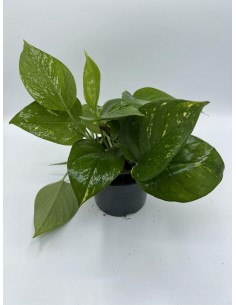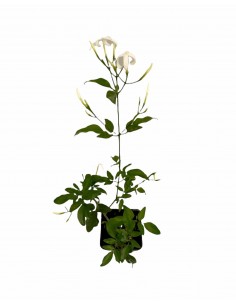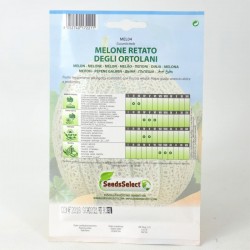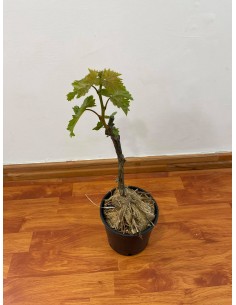Rhyncospermum Jasminoides Plant
Generalities Rhyncospermum Jasminoides plant:
The species Passiflora edulis, unlike other passion flowers, is self-fertile, that is, it can produce even if grown alone. The fruits are exquisite berries, varying in color from purple to yellow, and contain numerous small seeds immersed in a yellow gelatinous mass. It can be grown where the temperature does not drop below 0 ° C or adequately protected from these temperatures. Originally from South America, it is one of the very numerous species of the Passiflora genus that gave its name to the Passifloracee family. It is known on the Italian market with the Portuguese name of maracuj.
Online Sale Plant Rhyncospermum Jasminoides, available in the following formats:
- jar 7cm, height 5/15cm
- jar 18cm, height 60/80cm
Online Sale Plant Rhyncospermum Jasminoides, available in the following formats:
- jar 7cm, height 5/15cm
- jar 18cm, height 60/80cm
Generalities Passiflora Edulis plant:
The Passiflora Edulis is a climbing plant for mild climates, vigorous and with more or less jagged deciduous foliage that needs a support on which the plants are fixed thanks to the vines that develop along the stems. It has a bluish white bloom and from the 1st year it produces fruits, edible and very fragrant (used for pastry and sorbets). The fruit, more than for the very soft and rich flesh of small seeds, is appreciated for its intense and characteristic aroma, for which it is used in the production of juices, ice creams and other preparations for food use. For this purpose, passiflora edulis is grown in different tropical and subtropical regions around the world. As well as for ornamental purposes, Passiflora Edulis is also cultivated for its precious and tasty fruits. Numerous liqueurs and alcoholic drinks are made from its gelatinous and perfumed pulp. The juice obtained from the pulp of the maracuja is used in addition to many drinks and cocktails, thanks to its unmistakable aroma and taste. Many food preparations are also made with this precious berry: jams, sauces and desserts are just some of its uses in the kitchen, for the creation of dishes rich in Vitamin C, iron, carotenoids, mineral salts and potassium. Another curiosity concerning the plant is linked to its name. It seems that the term Passiflora derives from the Latin Passio (Passion) and Flos (flower). Discovered for the first time by the Jesuits in 1610, the Passiflora Edulis was so called because of the particular shape of its flowers, which remind the pistils of the nails of the passion of Jesus, and the crown of thorns in the rays. The tendrils also seem to evoke the whip of the scourging.
Cultivation and Care Plant Passiflora Edulis:
Passiflora edulis needs regular and abundant watering. Irrigation should be carried out throughout the vegetative period from spring to early winter. In winter it is necessary to suspend watering to prevent freezing water from ruining the roots. It is necessary to avoid any stagnation of water, the main cause of root rot. Water is also necessary for the development of the fruit, too little would slow down the ripening or cause its early drying. To understand the right water requirement of the plant it is necessary to observe the substrate of the plant, if by digging a few centimeters it is observed that the soil is dry, then it is necessary to increase the frequency or quantity of the water supplies. Much attention must be paid to the quality of the water, especially for potted plants, is best if you water it with rainwater.
















